Neutrality Model
Speech by Maja Riniker, President of the National Council, at the opening of the exhibition Model Neutrality at the Aargauer Kunsthaus on Friday, 31 January 2025
[Translated from German to English by DeepL]
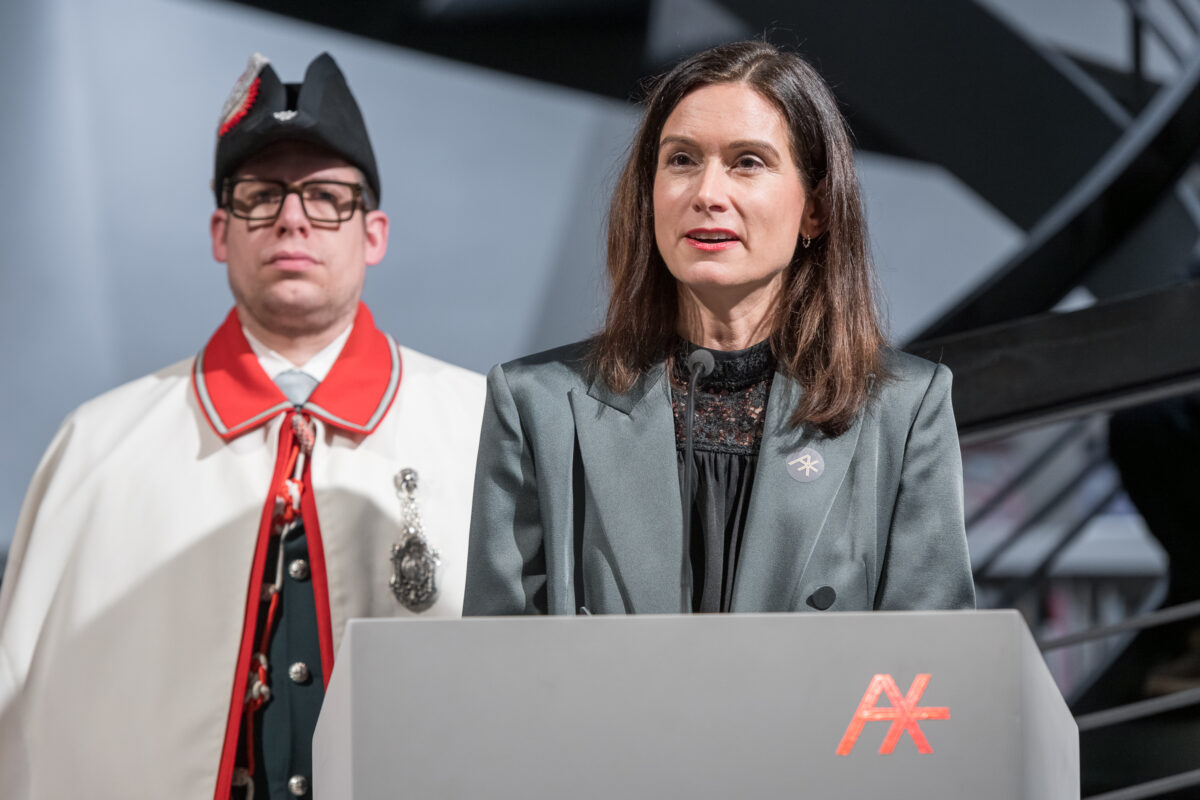 i
i
Foto: ullmann.photography
Dear art lovers
Dear team of the Aargauer Kunsthaus
What do you understand by neutrality? Is it a historical heritage, a political concept or an ethical stance? For Switzerland, neutrality is all that and more. Its roots go back deep into Swiss history and still characterise our national identity today.
The law of neutrality states that Switzerland will not take part in military conflicts involving other states. In contrast, neutrality policy adapts to new challenges, both in a national and international context.
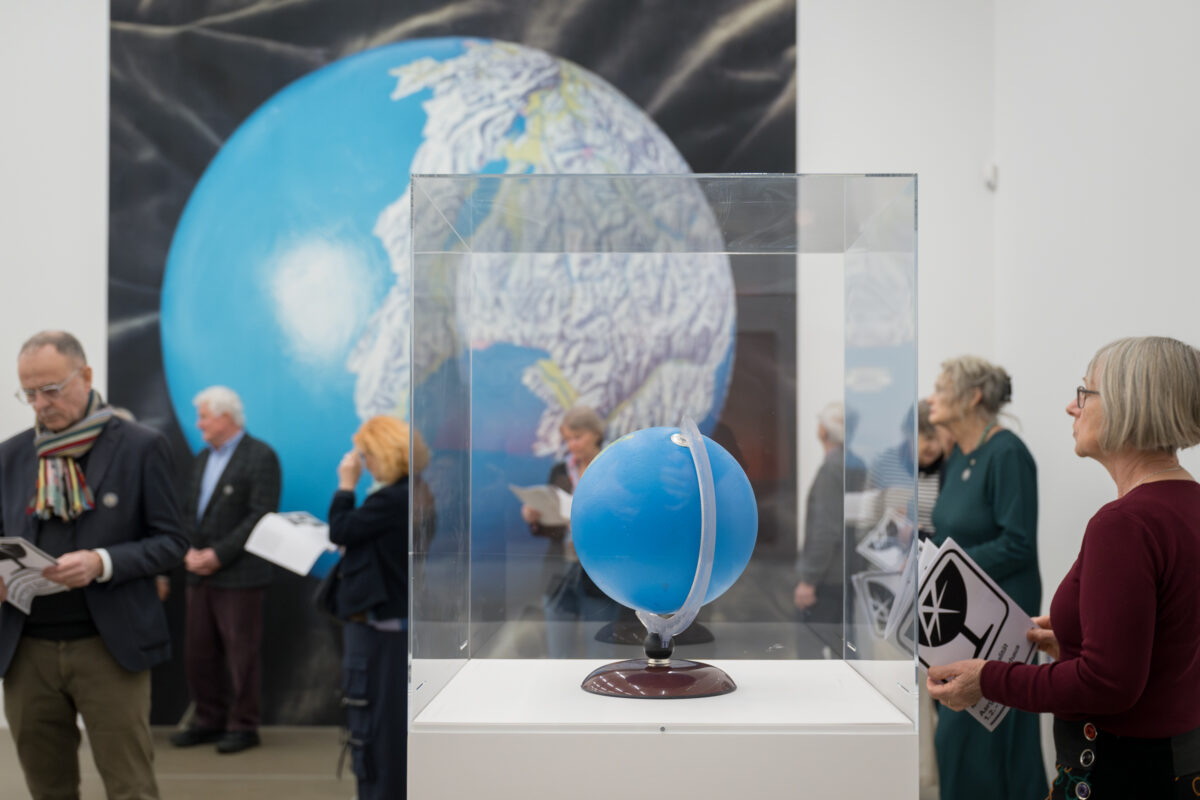 i
i
31.1.2025, Aargauer Kunsthaus
Guido Nussbaum (*1948),
Schweizer Welt 1, 1995
Schweizer Weltglobus, 1998-2008
Foto: ullmann.photography
For me, being ‘neutral’ is not political indifference, but an obligation. It is part of my basic attitude towards the international community and towards future generations. Swiss neutrality is not a passive stand-off. It is an active commitment to dialogue, diplomacy and international law. Those who condemn injustice in the world do not violate Swiss neutrality. This is demonstrated by the Swiss parliament’s condemnation of Russia’s attack on Ukraine, which violated international law.
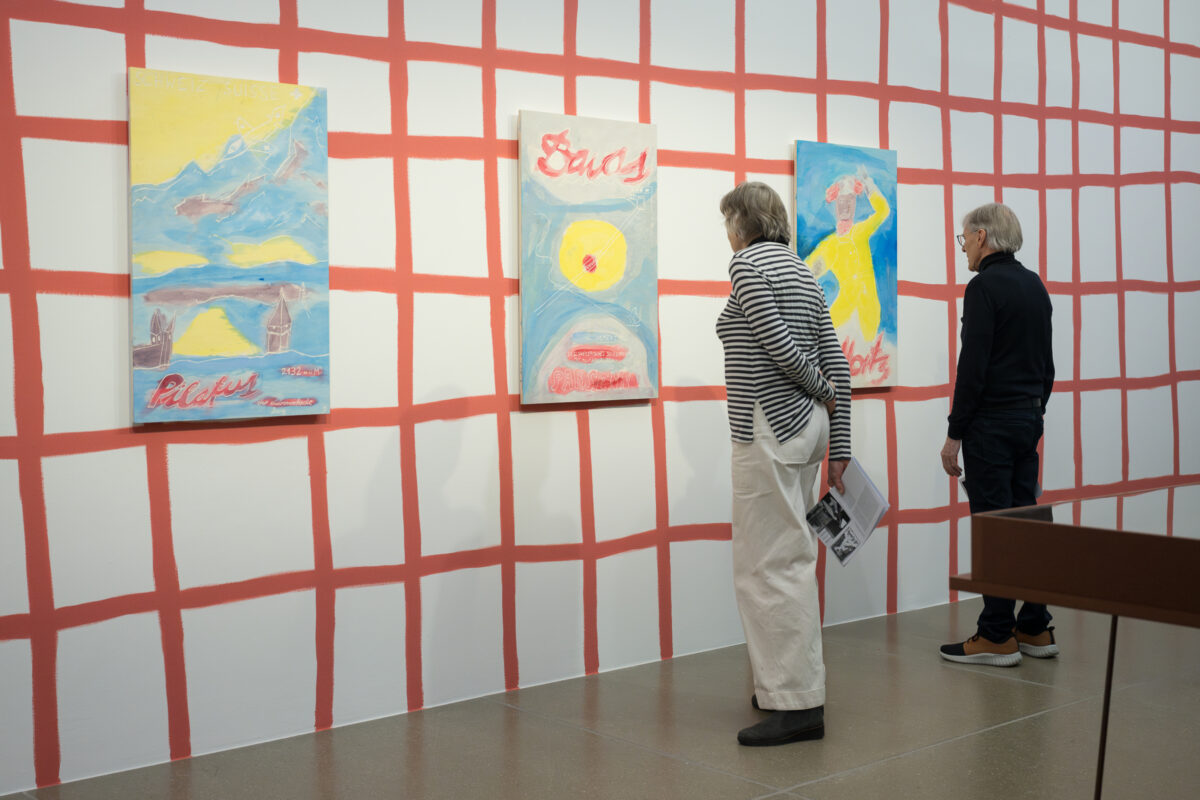 i
i
31.1.2025, Aargauer Kunsthaus
Felix Stöckle (*1994), Vintage-Tourismusplakate, 2024 - 2025
Foto: ullmann.photography
Our neutrality is therefore much more than a foreign policy principle. It has contributed significantly to the survival of our federal state since it was founded 177 years ago. We have been able to maintain our independence and act as a reliable partner for peace and understanding in world politics. From a Swiss perspective, neutrality is a wise defence of interests and a legitimate political stance vis-à-vis the leading European states.
However, in a world of polarisation and in which countries violate international law and human rights, Swiss neutrality is repeatedly criticised. Is it still up to date? How much neutrality can an unpredictable age tolerate?
 i
i
31.1.2025, Aargauer Kunsthaus
Marc Bauer (*1975), Sphinx, 1931, 1935/1947, 2014
Foto: ullmann.photography
While politics must provide clear answers and take responsibility, art is allowed to ask questions. It does not have to answer them, but can deliberately leave them open. Artists have the freedom to express their perspectives loudly and clearly, subtly and quietly or even provocatively. Just under a year ago, I came across a work at the Swiss Institute in New York that gave me pause for thought. It was a video by the artist Raven Chacon. Entitled ‘Report, 2015’, he created a composition and score for an ensemble of firearms. The work interrupts the silence with a cacophony of power and resistance. And I asked myself: Can weapons be art? And at a time when we are all too keen to read about ceasefires? But art makes contradictions visible and opens up new perspectives.
This is the strength of the Neutrality exhibition here at the Aargauer Kunsthaus. In our democratic society, we need spaces like this: space for reflection, space for creativity and space for open discussion.
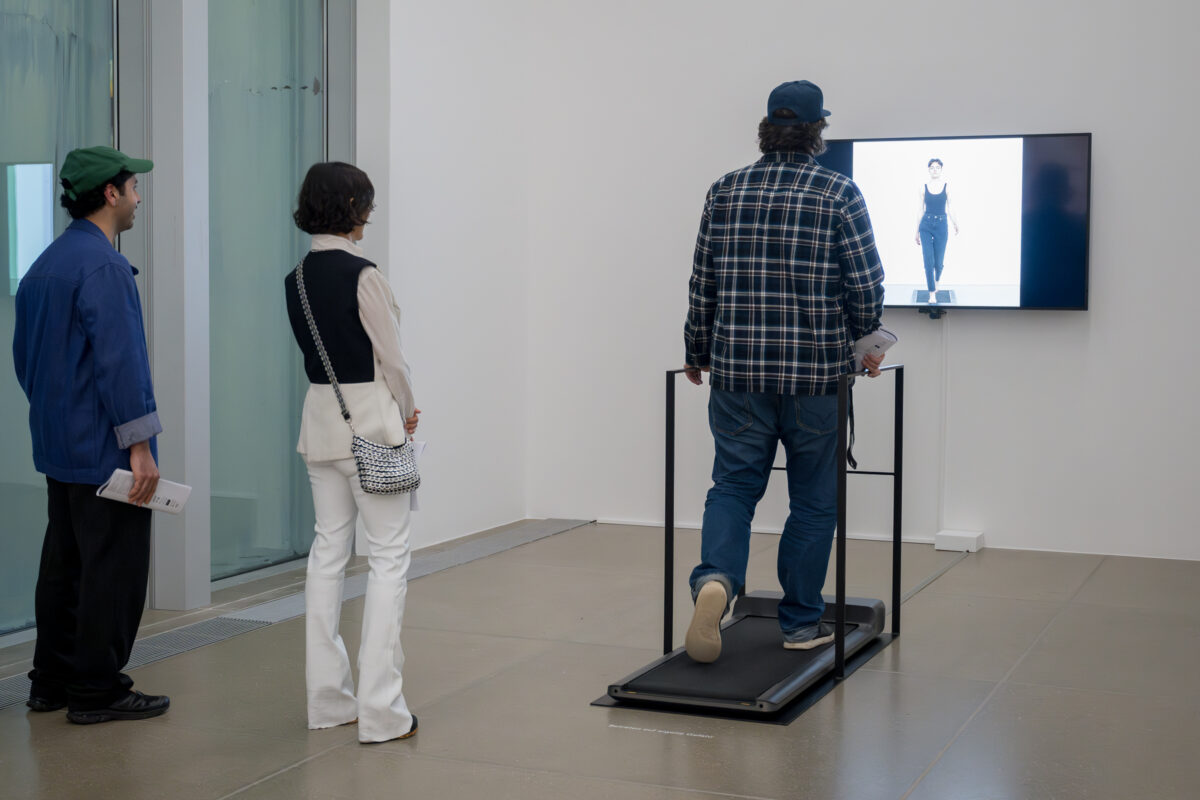 i
i
31.1.2025, Aargauer Kunsthaus
Kim Da Motta (*2000), How would I walk, had I never seen a woman walk?, 2022
Foto: ullmann.photography
A vibrant cultural landscape helps to promote the formation of opinion – beyond neutrality. That is why it is so important that we advocate a decentralised and diverse culture – a culture that inspires, questions and connects. This is also why I am personally committed to art and culture. My family and I are members of the Friends of the Collection of the Aargauer Kunsthaus. For me, art is a cause that enriches me and other dialogues and an active contribution to social dialogue. After all, art not only offers space for individual creativity, but also a platform for understanding and exchange.
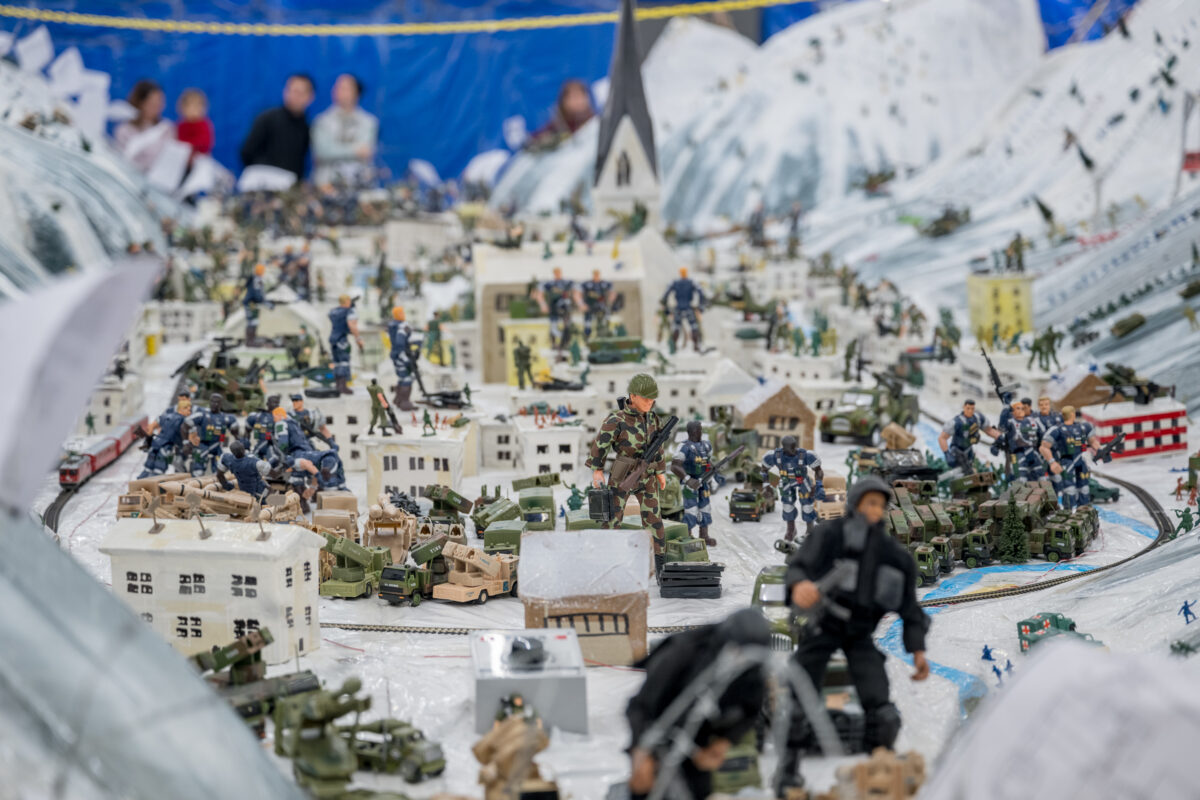 i
i
31.1.2025, Aargauer Kunsthaus
Thomas Hirschhorn (*1957), Wirtschaftslandschaft Davos, 2001
© 2025, ProLitteris, Zürich
Foto: ullmann.photography
Dear employees of the Aargauer Kunsthaus. Thank you for making the topic of ‘neutrality’ accessible to the public from a different perspective. I wish visitors to the exhibition many exciting impressions, discussions and encounters.
Let us engage in this dialogue – with courage, openness and a firm belief in the strengths of our democracy.
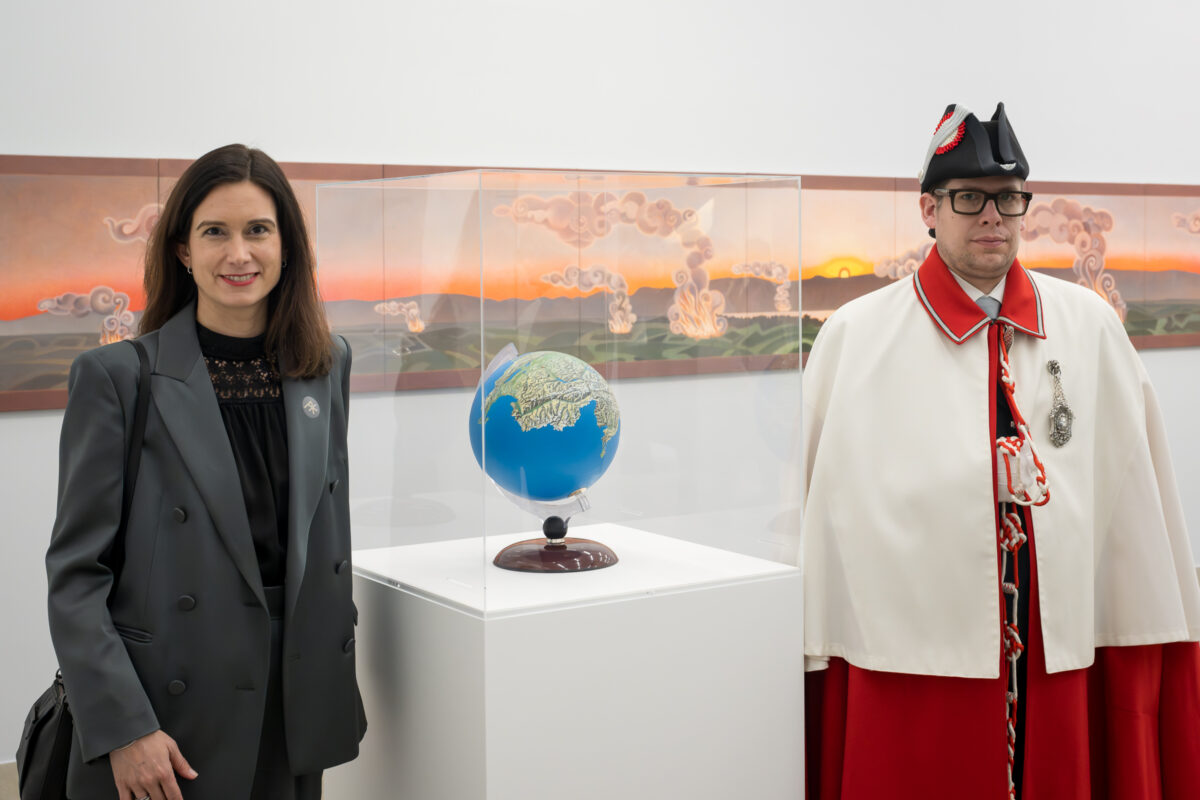 i
i
Guido Nussbaum (*1948), Schweizer Weltglobus, 1998-2008 und
Caroline Bachmann (*1963), 58 av. J.-C., 2020
Foto: ullmann.photography